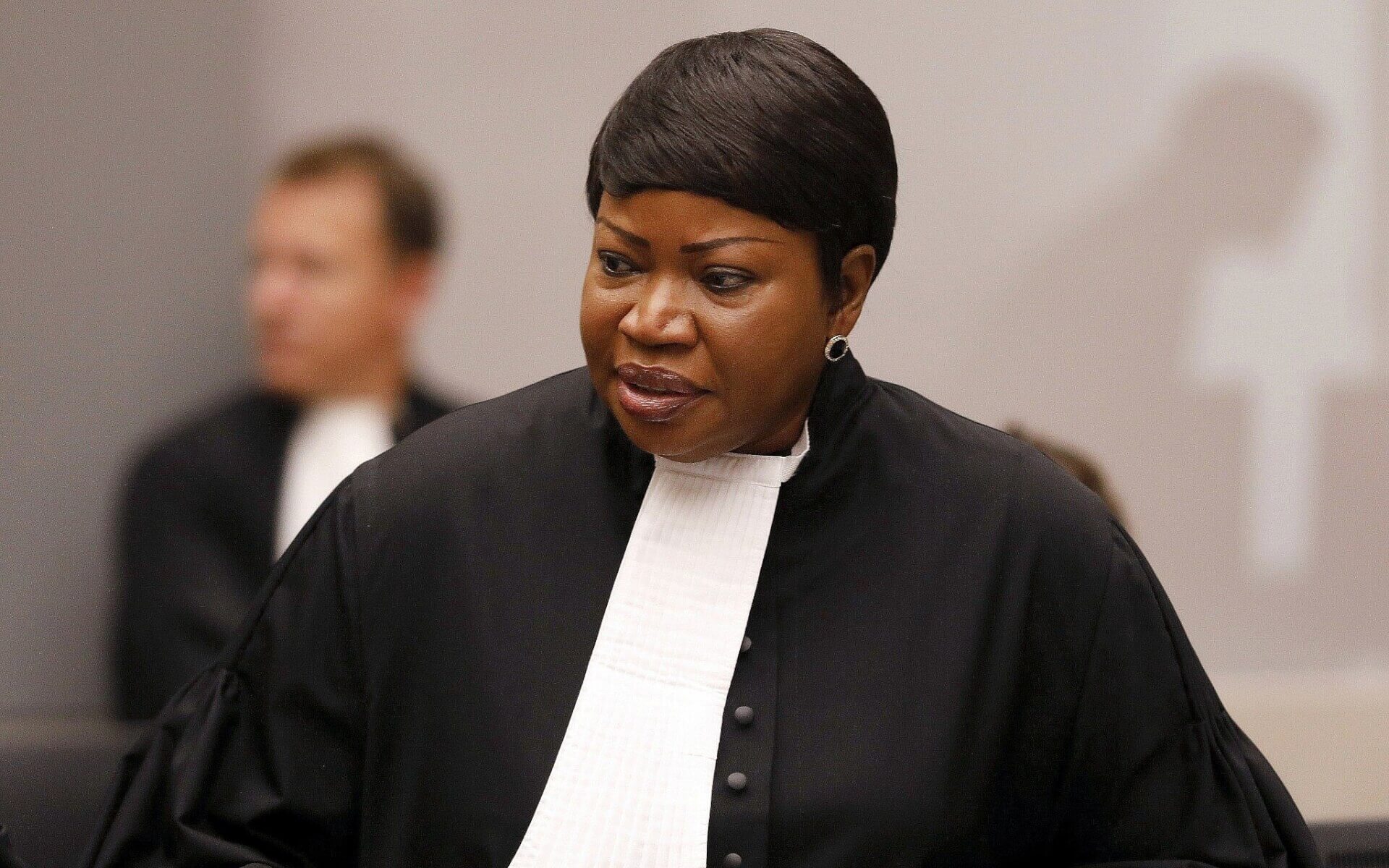Following the completion of a ‘preliminary examination’, International Criminal Court (ICC) Chief Prosecutor Fatou Bensouda has indicated her desire to open a formal investigation into war crimes and crimes against humanity committed during the Nigerian Security Forces’ (NSF) battle against terror group Boko Haram.
She held Boko Haram and its splinter groups responsible for committing the following crimes: “murder; rape, sexual slavery, including forced pregnancy and forced marriage; enslavement; torture; cruel treatment; outrages upon personal dignity; taking of hostages; intentionally directing attacks against the civilian population or against individual civilians not taking direct part in hostilities; intentionally directing attacks against personnel, installations, material, units or vehicles involved in a humanitarian assistance; intentionally directing attacks against buildings dedicated to education and to places of worship and similar institutions; conscripting and enlisting children under the age of fifteen years into armed groups and using them to participate actively in hostilities; persecution on gender and religious grounds; and other inhumane acts.”
The Boko Haram primarily targets Muslim states; however, they have also been known to kidnap Christian girls and forcibly convert them. The group gained international notoriety in 2014, when they abducted 276 girls, the majority of them between 16 and 18. In fact, Boko Haram is active across the Lake Chad region, with operations in Nigeria, Chad, Cameroon, and Niger. Reports from Niger over the weekend revealed that at least 27 people were killed and that between 800 and 1,000 houses were destroyed by a group of 70 militant insurgents.
While Bensouda thus conceded that much of the human rights abuses were committed by non-state actors, Bensouda declared that there was a “reasonable basis” to believe that the NSF, too, had committed: “murder, rape, torture, and cruel treatment; enforced disappearance; forcible transfer of population; outrages upon personal dignity; intentionally directing attacks against the civilian population as such and against individual civilians not taking direct part in hostilities; unlawful imprisonment; conscripting and enlisting children under the age of fifteen years into armed forces and using them to participate actively in hostilities; persecution on gender and political grounds; and other inhumane acts.”
Although the Chief Prosecutor acknowledged Nigerian authorities’ efforts to “hold members of Boko Haram to account in recent years”, she indicated that Nigeria had not upheld its responsibilities as a signatory of the Rome Statute—one of the founding pillars of the ICC, which was established to prosecute individuals for genocide, crimes against humanity, war crimes, and the crime of aggression.
The ICC does not typically open investigations into war crimes if the accused country launches its own internal investigation and provides satisfactory findings. However, given that Nigerian authorities failed to adequately address these concerns over a ten year period, Bensouda has now taken matters into the ICC’s hands.
The announcement was welcomed by Amnesty International and other rights groups as an “important milestone”. Bensouda must now seek the approval of the Judges of the Pre-Trial Chamber of the Court to formally open an investigation into the matter.
In her statement, Bensouda said that she will attempt to “reach determinations on all files that have been under preliminary examination under my tenure” before the end of her term in June 2021. Thus far, her replacement has not been named.
On the same day that she announced her intention to open a formal investigation into Nigeria, the Chief Prosecutor also stated her desire to do the same with Ukraine, which has been under the scanner since Russia annexed Crimea in 2014 and instigated and enduring battle between pro-Russian rebels and Ukrainian government forces. Bensouda remarked that she had “reasonable basis to believe that a broad range of conduct constituting war crimes and crimes against humanity have been committed”.
She is also conducting parallel investigations into: the Democratic Republic of the Congo, Sudan, the Central African Republic, Kenya, Libya, Côte d'Ivoire, Mali, Georgia, Burundi, Bangladesh, Myanmar, and Afghanistan. At the same time, her office is also overseeing preliminary examinations of Bolivia, Colombia, Guinea, the Philippines, and Venezuela.
Last week, Bensouda announced her decision to drop the court’s investigation into war crimes committed by the United Kingdom (UK) in Iraq between 2003 and 2008, arguing that the UK has already taken steps to do so itself. The ICC began investigating crimes committed by the UK in Iraq in 2003. Thereafter, the enquiry was dropped in 2006 and only restarted in 2014 after fresh evidence was presented to the Prosecutor.
The most well-known case she is handling is her investigation into the actions of the Taliban, the Afghan government, and US troops between 2003 and 2014, including attacks on civilians, imprisonment, and extra-judicial executions. This investigation has led the US to impose sanctions on all ICC employees involved in the Afghanistan case by blocking their assets and their entry into the US. On September 2, the Trump administration extended these sanctions to Bensouda and Phakiso Mochochoko, who is the Head of the Jurisdiction, Complementarity and Cooperation Division.

